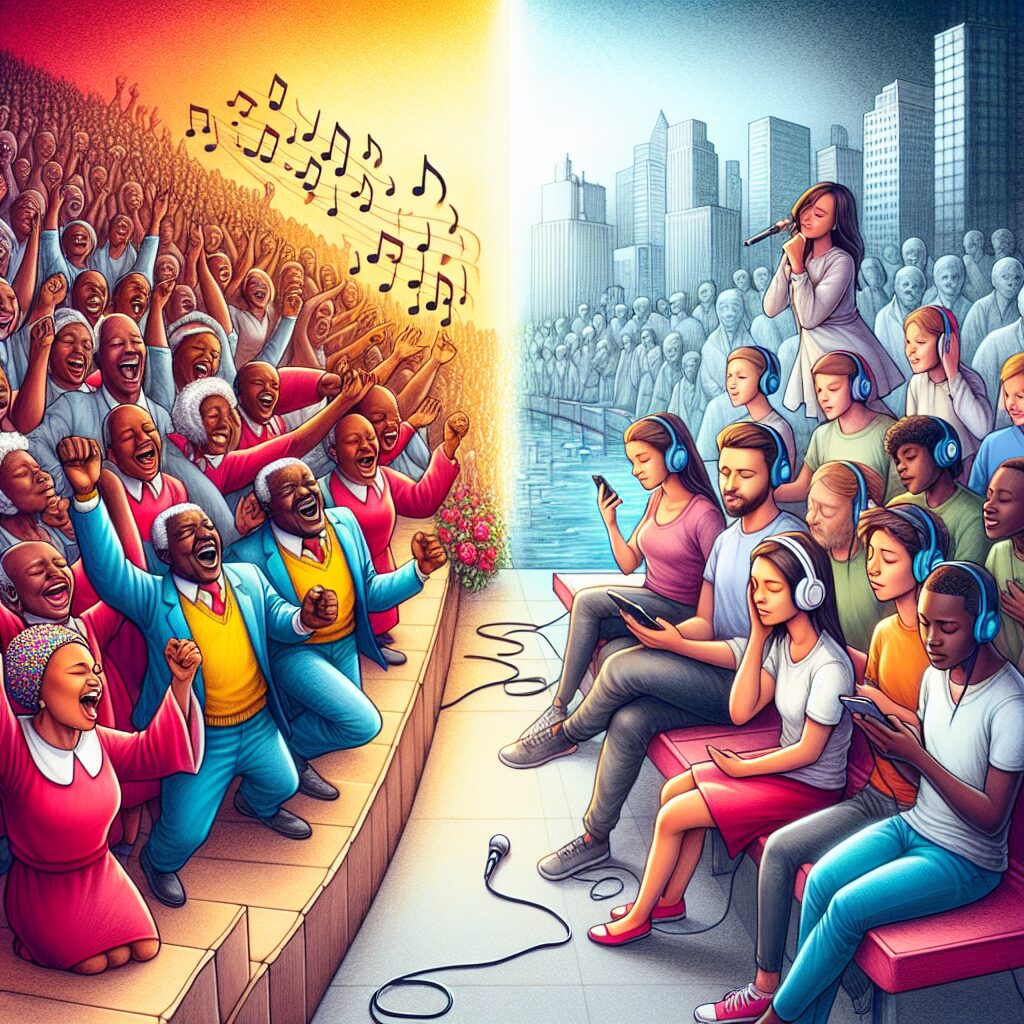The Decline of Gospel Music in South Africa: A Detailed Analysis
Gospel music in South Africa has long been a cornerstone of the country’s cultural and spiritual life. It has been the soundtrack to many South Africans’ lives, providing comfort in times of sorrow, joy in times of celebration, and inspiration in times of need. However, in recent years, there has been a noticeable shift in the popularity of this genre. This has led to many questioning whether gospel music is losing its voice in South Africa.
The decline of gospel music in South Africa is not a sudden phenomenon. It has been a gradual process, marked by a steady decrease in album sales, concert attendance, and radio airplay. This trend is particularly noticeable when compared to the rise of other music genres such as hip hop, house, and kwaito, which have seen a surge in popularity over the same period.
The reasons behind this shift are complex and multifaceted. One contributing factor is the changing demographics of South Africa. The younger generation, who are the primary consumers of music, are increasingly drawn to more contemporary and global music styles. This has led to a decrease in the demand for traditional gospel music, which is often seen as outdated and out of touch with modern sensibilities.
Another factor is the commercialization of the music industry. In an era where streaming services dominate and physical album sales are dwindling, gospel music, which has traditionally relied on album sales for revenue, is struggling to adapt. This has led to a decrease in the production of gospel music, as record labels are less willing to invest in a genre that is not as profitable as it once was.
However, it’s not all doom and gloom for gospel music in South Africa. Despite the challenges, there are still many who are passionate about this genre and are working tirelessly to keep it alive. There are gospel artists who are innovating and adapting to the changing music landscape, infusing their music with contemporary sounds and styles to appeal to a younger audience. There are also initiatives aimed at promoting gospel music, such as gospel music festivals and awards, which are helping to keep the genre in the public eye.
The decline of gospel music in South Africa has wider societal implications. Gospel music has always been more than just entertainment. It has been a source of spiritual nourishment, a means of expressing faith, and a tool for social commentary. Its decline, therefore, represents not just a shift in musical tastes, but a shift in societal values and priorities.
However, it’s important to remember that music, like society, is not static. It evolves and changes over time. Just as gospel music rose to prominence in the past, it can rise again. It may not look or sound exactly the same as it did before, but that’s not necessarily a bad thing. Change can bring about innovation and creativity, and can breathe new life into a genre.
In conclusion, while it’s true that gospel music in South Africa is facing challenges, it’s not losing its voice. It’s simply finding a new way to sing. And as long as there are those who are willing to listen, gospel music will continue to play a vital role in South Africa’s cultural and spiritual life.


